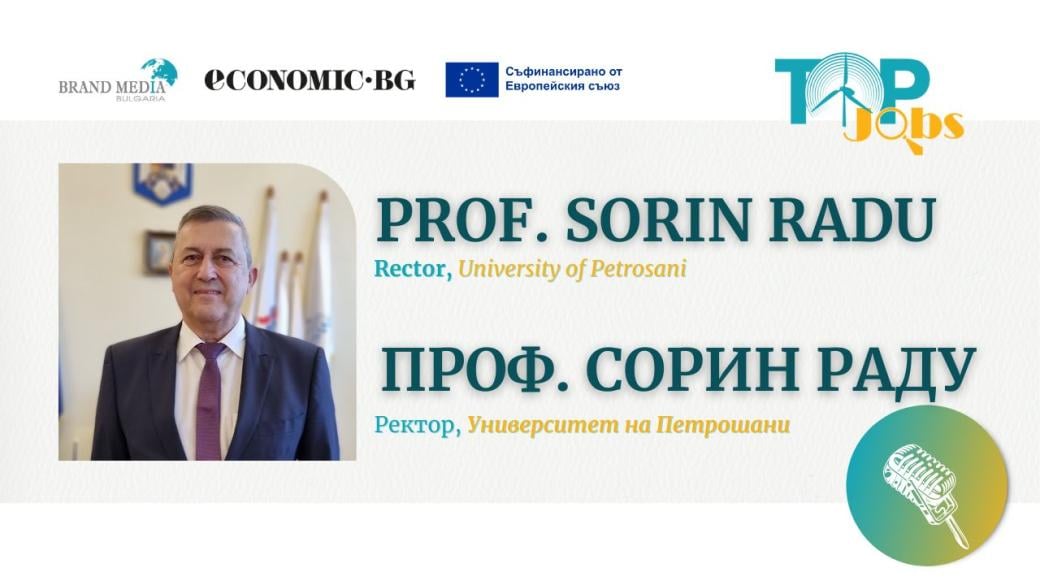Podcast | Education transformation – a good bet in coal-dependent Jiu Valley
Prof. Sorin Radu talks with us about an EU-funded project that makes pursuing a degree in Petrosani more attractive for local students

1 Video
© ECONOMIC.BG / Economic.bg
The University of Petrosani is a perfect example of the way education changes along with development priorities in a country. With the coming of the Communist regime in Romania after World War II, an emphasis was placed on the rapid industrialization and urbanization of the country – and at that time this meant leaning into even stronger reliance on coal. This meant that the mines in the Carpathian Jiu Valley, first developed during the days of the Austro-Hungarian Empire, were to be developed even further.
Apart from demand for manual labour and increased settlement of the valley, there was a need for qualified labour, such as mining engineers, to manage the operations. Thus, in 1948, the Coal Institute was founded – first in Bucharest, before moving to the main town of the valley in 1957.
The way history has unfolded, and priorities have changed can be seen even in things like the way that institution has undergone changes in its name since its foundation. The Coal Institute became the Mining Institute of Petroșani, which became the Technical University (1991) and later the University of Petroșani (1995).
But this has not just been a story of rebranding and changing the letters on the façade. The institution has also grown and diversified in its educational offer over time. When democracy arrived, but also a decline in the demand for coal and jobs industry began to be scuttled, the university needed to adapt and do it fast.
These days, you can pursue bachelor’s, master’s degrees and PhD degrees in fields as varied as accounting, social assistance, human resource management and robotics there, reflecting the increasingly complex realities that the modern capitalist system demands.
As coal extraction continues to wane locally, the University of Petrosani is actively trying to find stable footing by changing the way it prepares its students, as well. Unlike in the 1990s, however, this time around, there’s the European Union to extend a helping hand.
In this context, we sat down with the University’s Rector Prof. Sorin Radu to discuss how education can adapt in the face of deep economic transformation and hear more about the “Education, a Chance for the Jiu Valley!” project (financed through the European Social Fund to the tune of almost 688,000 euros (2018-2021)). Listen to this talk on our TOP JOBS podcast episode.
Co-Funded by the European Union. Views and opinions expressed are however those of the author(s) only and do not necessarily reflect those of the European Union. The European Union cannot be held responsible for them.


 Tzvetozar Vincent Iolov
Tzvetozar Vincent Iolov